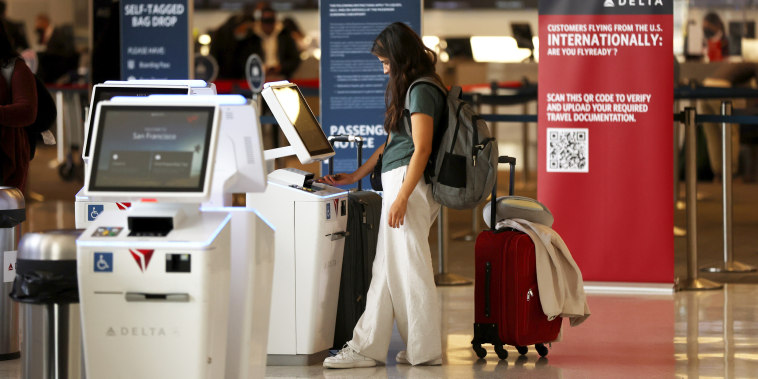After a summer airline travel season filled with delays and disruptions last year, air travelers should prepare for what could be more of the same this summer, officials say.
In an interview with CNBC, Delta Air Lines CEO Ed Bastian said customers are more interested than ever in getting out of town this summer.
Air travel “is something the consumer’s prioritizing,” Bastian said. “They may be pulling back in other areas … but I don’t see it in our credit card data, I don’t see it in our bookings.”
As it reported quarterly earnings Thursday, Delta said it was projecting “record advance bookings for the summer.”
It’s a statement supported by JPMorgan Chase industry analyst Jamie Baker, who said in a recent note to clients that he could not see “definitive evidence of cooling travel demand.” Booked revenue for the second quarter of 2023, he said, is “meaningfully ahead of last year.”
Data from the mobile travel booking site Hopper also shows demand for the summer travel season will be ‘strong,’ especially for international trips, where prices are up 34% from last year and up 32% from 2019.
And the latest figures from the Transportation Security Administration show daily passenger screening levels well ahead of where they were last year, with numerous days in 2023 having already surpassed their 2019, pre-pandemic equivalents.
Yet, Bastian of Delta Air Lines also said his company plans to nix a previously planned effort to get passenger capacity back to 2019 levels.
“We’re intentionally pulling back some of the capacity,” Bastian told CNBC. “We want to make sure we don’t outrun our capabilities.”
Airlines and the wider air travel industry have struggled to replenish staffing ranks as the pandemic has waned.
Most recently, the Federal Aviation Administration announced it was asking airlines to cut back service in the New York area because it is facing a severe shortfall of qualified air traffic controllers.
In a March memo, the agency said the region’s controller capacity was at just 54% of its target. Given current planned operations, the FAA said, it anticipates a 45% spike in delays for this summer.
The FAA said it is giving airlines “the ability to reduce operations during the peak summer travel period, which are likely to be exacerbated by the effects of Air Traffic Controller (ATC) staffing shortfalls.”
Airlines have already begun to respond. JetBlue was the first to announce it would be cutting flights for the area, and last week United and American airlines said they would do the same.
Airlines have already cut about 10% of scheduled flights this spring to address performance issues, the aviation trade group Airlines for America said.

